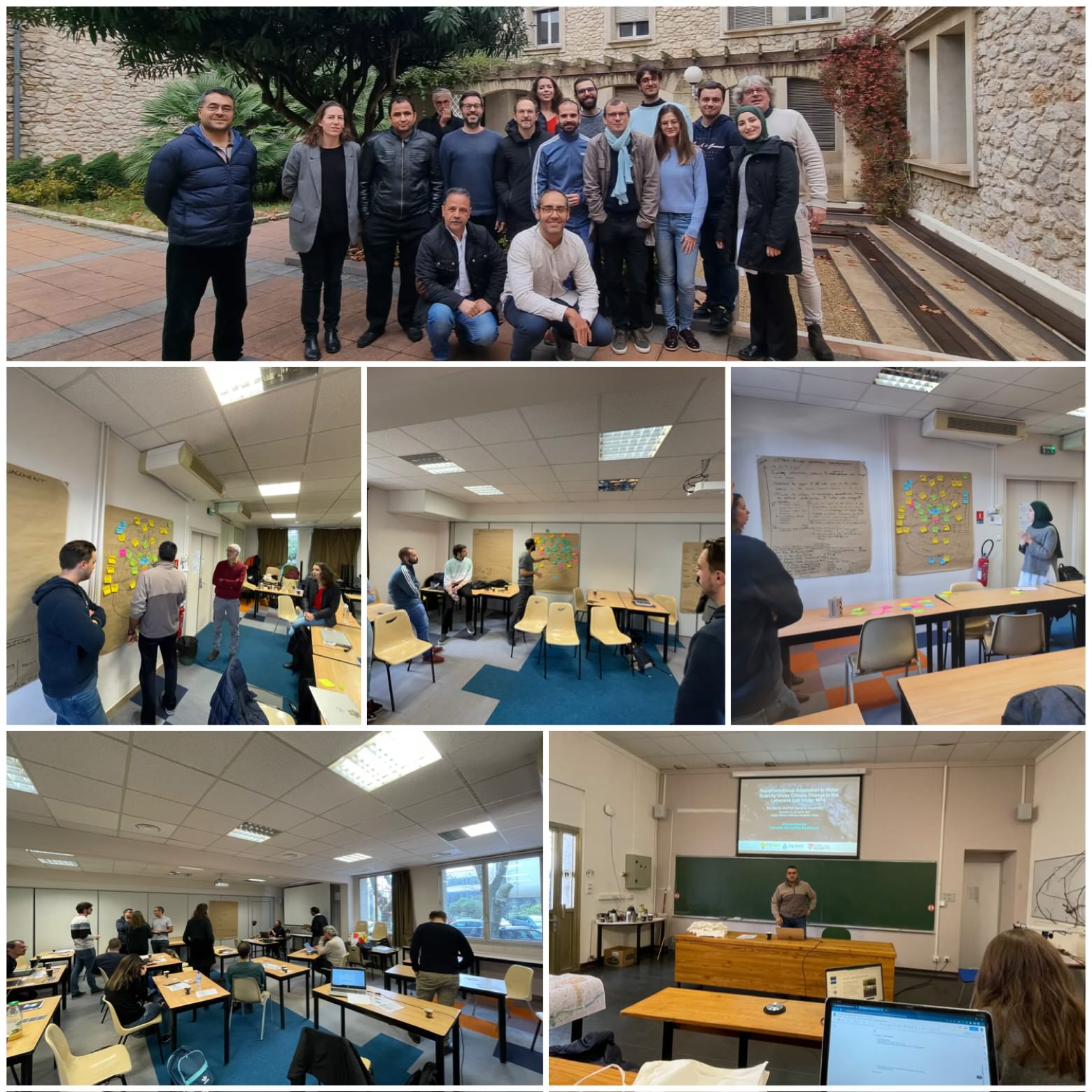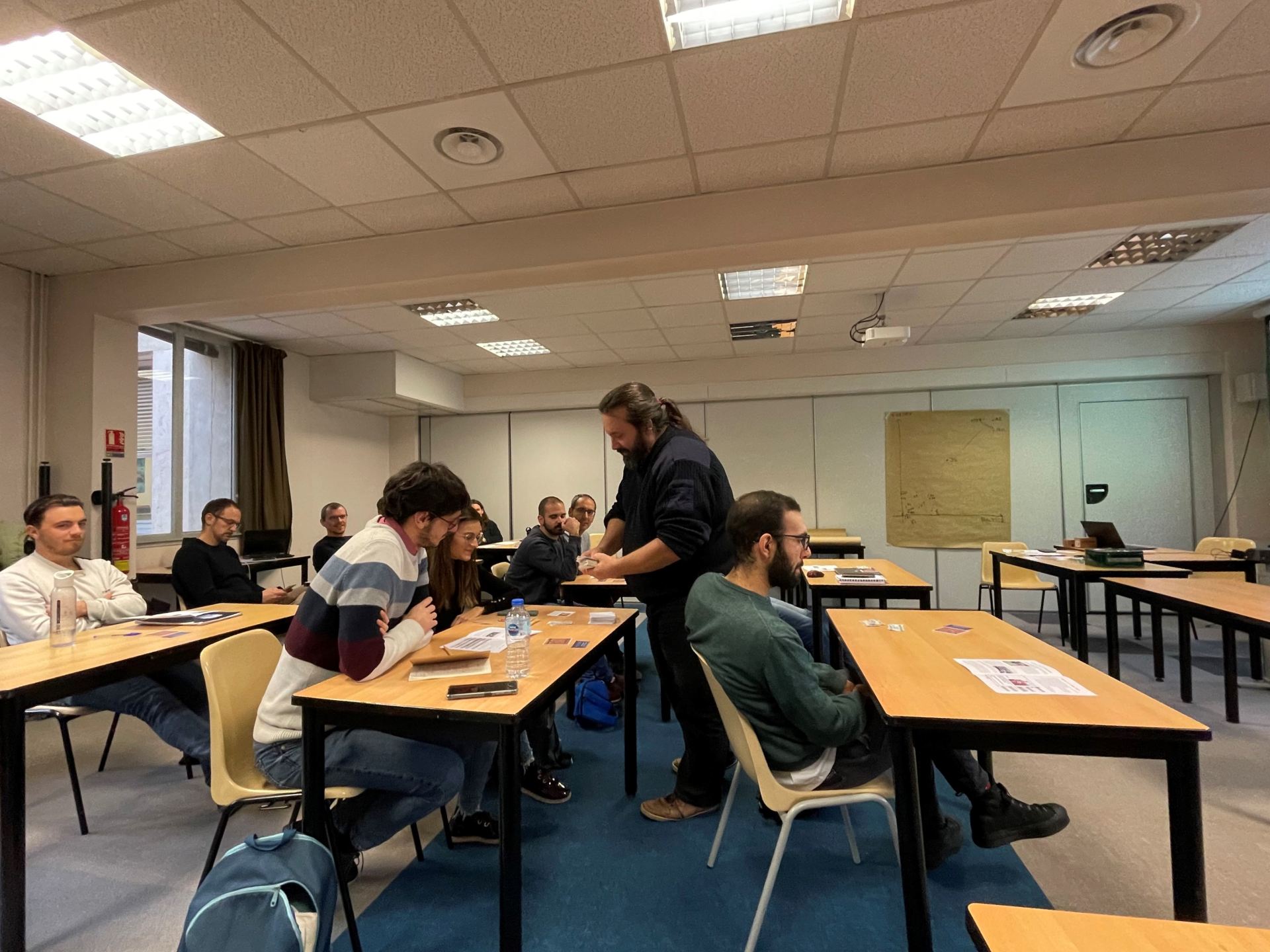AgHive at the Department of Agriculture participated in TALANOA-WATER General Assembly and Stakeholder Training in Montpellier
Concepts and tools to engage in an open innovation process on water management with stakeholders
The general assembly’s main objective is to evaluate the project’s progress over its first year, address gaps and existing delays in work packages and to propose solutions to any possible risks .
Project PI Dr. Hadi Jaafar and team member Rim Hazimeh participated in the first year general assembly of the TALANOA-WATER project from December 12 to 14, 2022. The assembly was held in Montpellier, France in collaboration with all international partners from Spain, France, Italy, Tunisia, and Egypt. The general assembly was followed by a 2-day training on concepts and tools to engage in an open innovation process on water management with stakeholders. The training was facilitated by Lisode, a cooperative consultancy specialized in designing and implementing participatory approaches.
TALANOA-WATER is a 4-year project, coordinated by the University of Salamanca, Spain, that brings together an international scientific consortium of 7 partners from 6 countries: Lebanon, Tunisia, Egypt, Italy, France, and Spain. TALANOA-WATER is funded by Horizon 2020 European Union Funding for Research & lnnovation, and Partnership for Research and Innovation in the Mediterranean Area (PRIMA Foundation).

The general assembly was comprised of a series of presentations by the six partners briefing the participants about the progress of each work package, advances, challenges, and data modeling approaches for each case study. The event also included a 2-day training on concepts and tools to engage in an open innovation process on water management with stakeholders, with a main focus on the design of a serious game on agricultural water management. Participants played a serious game and were divided into different roles including farmers, municipality of agriculture, and municipality of water. All partners were trained on how to design a serious game, by analyzing the context in each living lab of the TALANOA project: issues at stake, stakeholder analysis, types of innovations, objectives of the research, key principles for a successful implementation of multi-stakeholder dialogue through participatory tools, methods, and settings.


